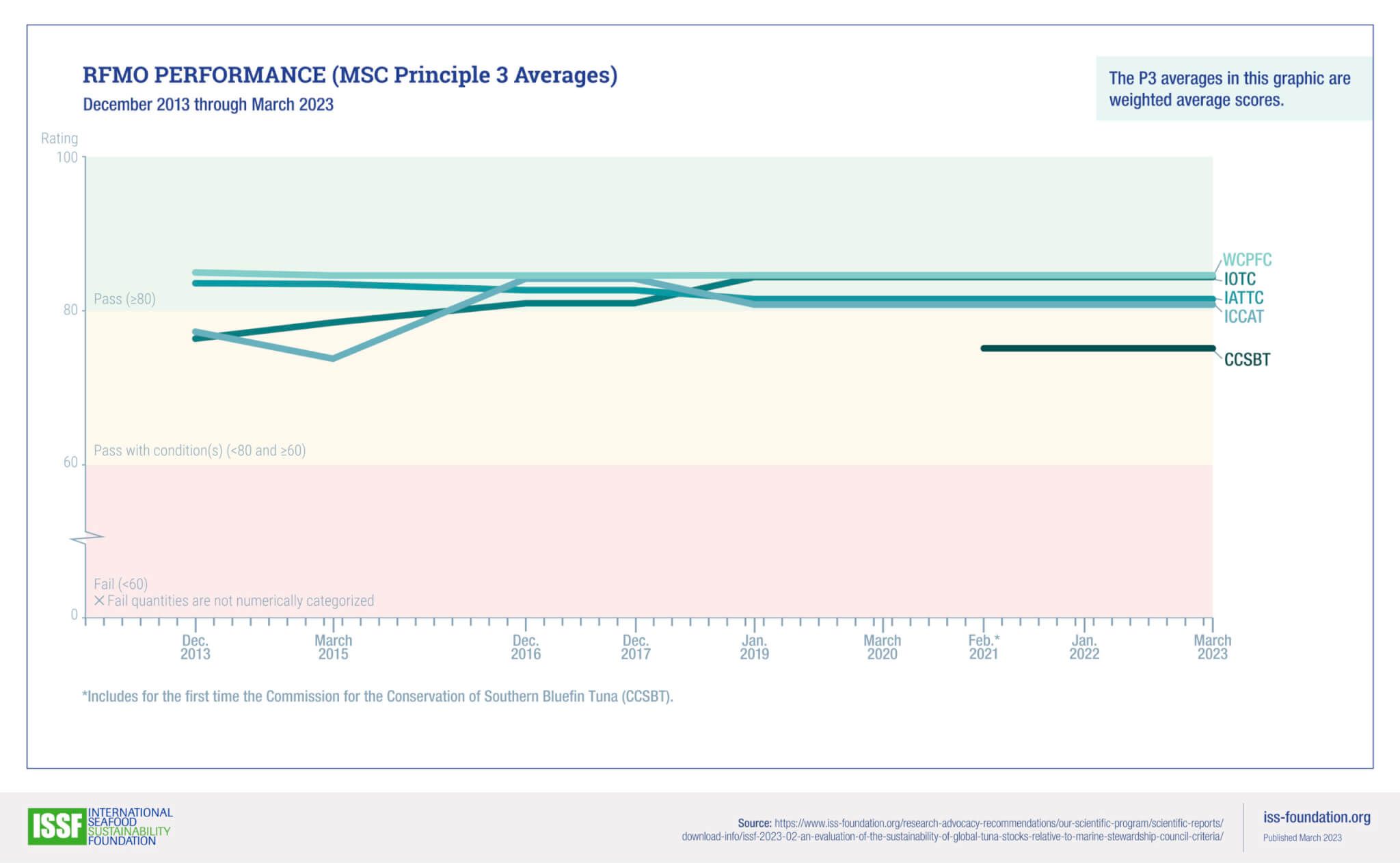Document: RFMO Performance (MSC Principle 3)
The Marine Stewardship Council (MSC) has established a program whereby a fishery may be certified as being sustainable. The sustainability of a fishery is defined by MSC criteria embodied in three Principles: relating to the status of the stock (Principle 1), the ecosystem of which the stock is a member (Principle 2), and the fishery management system (Principle 3).
Since many of these MSC criteria are comparable for global tuna stocks, the MSC scoring system was used to evaluate 23 stocks of tropical and temperate tunas throughout the world (based on Principle 1) and also to evaluate the management systems of the Regional Fisheries Management Organizations (RFMOs) associated with these stocks (based on Principle 3).
The 2023 ISSF report with P1 and P3 scores, ISSF 2023-02: An Evaluation of the Sustainability of Global Tuna Stocks Relative to Marine Stewardship Council Criteria, is authored by P. A. H. Medley and J. Gascoigne.
This graphic, based on data from the report, shows what the average scores for each tuna RFMO based on Principle 3 have been from 2013–2023.
The MSC’s Principle 3 states: “The fishery is subject to an effective management system that respects local, national and international laws and standards and incorporates institutional and operational frameworks that require use of the resource to be responsible and sustainable.”
Downloads: 426
